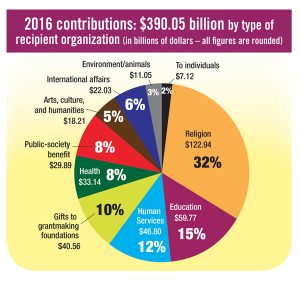Telling for both volunteer managers and students, almost three quarters of college admissions officers favor students who are consistently involved with one organization rather a variety of causes. Half of those survey respondents believed it was possible to have “too many” community service hours.
These are among the findings of a new study by DoSomething.org called the “Community Service and College Admissions Survey 2011.” Now in its third year, the study aims to illustrate how college admissions officers value community service.
The study is released as DoSomething.org re-launches its membership platform to conform to mobile engagement. Members only have to participate in one service project to register and are communicated with via text message. DoSomething.org hopes to have 5 million members by 2015. The organization currently has 525,000 members and projects to have 600,000 by year’s end.
The study also helps tear down the wall between volunteer managers and college admissions officers. Based on the data, volunteer managers can help advertise volunteer programs centered on what universities are looking for.
DoSomething.org conducted the survey with admissions officers from 32 of the top 50 colleges and universities listed in US News & World Report. Based on the responses, college admissions officers were found to value consistency over variety, seeking applicants passionate about a cause. The survey was conducted last summer, from June 13 to Aug. 10.
“One of the highlights from that study is that it’s important to be involved in one cause rather than many,” said Betsy Fast (pictured above), editor-in-chief at DoSomething.org. “This increased 22 percent from last year. We are consistently having admissions officers tell us, ‘Dedication is the true measuring gauge.’”
When asked if four years volunteering at a local community shelter was more valuable than a one-month spurt of volunteerism abroad, 92 percent of those surveyed preferred the local community service.
Leadership is the most important attribute when participating in organizations, with about 76 percent of admissions officers saying it plays a huge part in admissions. About 44 percent valued a rank of president or other leadership label, and almost a third, about 32 percent, ranked contributing ideas as vital.
When choosing an organization for which to volunteer, admissions officers steadily decreased their value of political work. Some 68 percent of admissions officers considered a political campaign to be community service, down 12 percent from the 2010 results. About 60 percent of officers preferred an applicant volunteering for a political campaign to working with an animal welfare organization.
DoSomething.org also asked admissions officers for words that illustrated “power words” to enhance résumés and “danger words” that might decrease the value of applicants. Some power words were passion, growth, dedication, and initiative and coordinated. Danger words included required, Africa, obligation, summer camp, and fun.
“I was surprised to see ‘Africa’ listed on the danger words list,” said Fast. “It might speak to the level of commitment someone has for a cause. If someone just went on a short jaunt through Africa, admissions people might not be interested.”
This is not to say an extended service trip is not valuable. Almost 96 percent of admissions officers value a student who took a gap year and did a service project. Fewer than 1 in 20 admissions officers preferred students who used their time to travel around the world.
When documenting community service, 88 percent of admissions officers said students should start citing service done as early as middle school. Some 12 percent said you could cite through the summer after middle school.
As an increasing number of high schools have begun requiring community service, 96 percent of officers said that a requirement does not lessen the perception of an applicant.
A little more than three quarters (76 percent) of officers reported that service organizations like the Boy Scouts are not given extra weight yet 100 percent recognized the Eagle Scout award as an important distinction.
However important and valuable community service may be, it still pales in importance to some other factors. Community service was ranked behind Grade Point Average (GPA)/class rank, SAT or ACT score and extracurricular activities, but ahead of reference letter/interviews and legacy/relationship to the school.
“This is by no means a complete, comprehensive guide for everyone,” said Fast, “but I think this can be used as a useful tool to see what admissions officers are looking for. We didn’t speak to every officer, but it is a good sampling of the top schools.”











